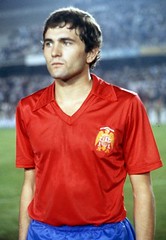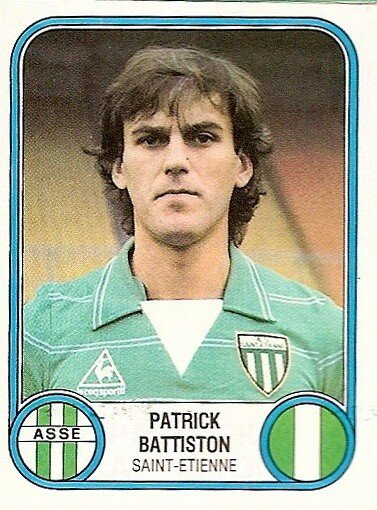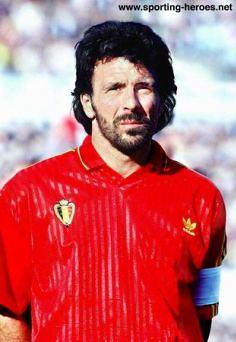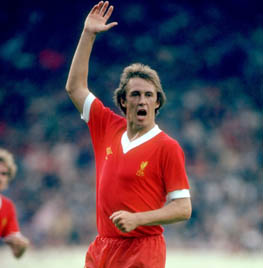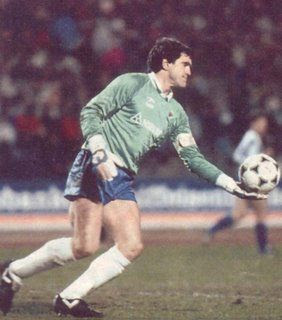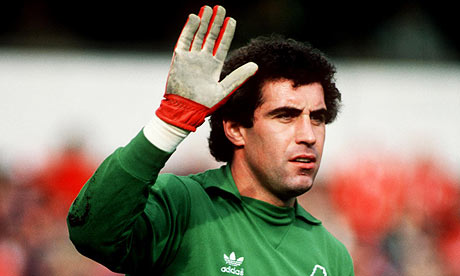Ruud Krol (Napoli and Holland) *** 29 games, 1 goal
Having arrived from the Vancouver Whitecaps on an initial 4 month loan period, the Dutchman never returned. Perhaps that was unsurprising. The form he demonstrated at Napoli marked him out as the best player in Serie A and carried the club to a top three finish.
Gaetano Scirea (Juventus and Italy) *** 29 games, 4 goals
No defender in world football is more elegant on the ball than Scirea. The Juventus sweeper makes defending look effortless, with his anticipation and flawless tackling. Yet another Scudetto was a well earned reward for another supreme season’s form.
Aleksandr Chivadze (Dinamo Tbilisi and USSR) *** 31 games, 5 goals in 1980, 28 games, 2 goals in 1981
Outstanding in the exceptional form shown by Dinamo Tbilisi. The Georgian club completed a tremendous run in the Cup Winners’ Cup and Chivadze was one of the real stars in their heroics. It was a richly deserved trophy for a club who had shown their class in Europe for a number of years with Chivadze long being held as among the game’s finest liberos.
Bruno Pezzey (Eintracht Frankfurt and Austria) ** 31 games, 10 goals
Pezzey went from strength to strength in 1980-1 and underlined why many regard him among the best defenders in the world. His ten goals were of course of huge value and underlined his all round contribution to the club, but it was at the back where his true class shone through.
John Metgod (AZ Alkmaar and Holland) * 34 games, 3 goals
Metgod is the starting point for so many of AZ’s best attacks. Able to spot a pass from distance or surge forward himself when the mood takes him, he is more than just a defender. No wonder then that he is already emerging as a key player for the Dutch national team.
Wilfried Hannes (Borussia Moenchengladbach and West Germany) * 33 games, 16 goals
Hannes’ debut for West Germany at the end of the 1980-1 season was evidence of the strides he made during the season. The sweeper contributed a phenomenal 16 goals in the league from the heart of Gladbach’s defence, a commendable tally for a striker, let alone a central defender!
Luc Millecamps (Waregem and Belgium) *
Belgium’s Millecamps performed well enough in 1981 to be chosen by French magazine Onze Mondial for their World XI. Not as technically gifted as many of his fellow liberos, he is primarily focused on tidying up other player’s errors rather than prompting attacks of his own.
Russell Osman (Ipswich Town and England) * 42 games, 1 goal
In completing a superb season for Ipswich, Osman also forced himself into the reckoning for a place in the England team. Having made his debut in Australia in May 1980, his second cap came alongside club teammate Terry Butcher in a 2-1 defeat against Spain.
Dieter Bast (Bochum and West Germany) * 34 games, 5 goals
Bochum’s mid-table finish did not adequately reflect the contributions that Bast made during an eventful season. The club’s defence was always their key strength, indeed only the top four Bundesliga clubs conceded less goals than Bochum. Nevertheless it was a frustrating campaign for a player capable of competing at the highest level.
Alan Hansen (Liverpool and Scotland) * 36 games, 1 goal
Hansen continued his progress in a season that eventually saw him lift a second European Cup. The Scot’s partnership with Phil Thompson was a source of great surety for Liverpool. The club only conceded four goals in their European Cup victory and clean sheets in the home leg against Bayern Munich and against Real Madrid proved crucial.


















